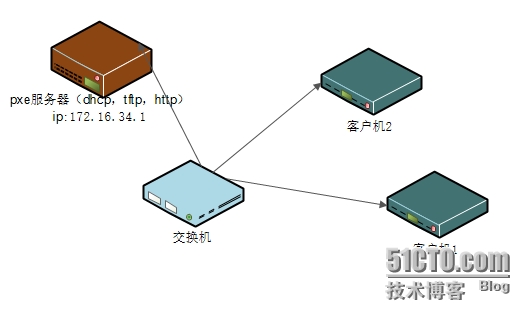- 《华杉讲透王阳明传习录》
微微微微神
〔5〕希渊问:“圣人可学而至。然伯夷伊尹于孔子,才力终不同。其同谓之圣者安在”?先生曰,“圣人之所以为圣,只是其心纯乎天理,而无人欲之杂。犹精金之所以为精,但以其成色足而无铜铅之杂也。人到纯乎天理方是圣。金到足色方是精。然圣人之才力,亦有大小不同。犹金之分两有轻重。尧舜犹万镒。文王孔子犹九千镒。禹汤武王犹七八千镒。伯夷伊尹犹四五千镒。才力不同,而纯乎天理则同。皆可谓之圣人。犹分两虽不同,而足色则同
- 新能源汽车 BMS 学习笔记篇—BMS 基本定义及分类
WPG大大通
其他笔记汽车BMS经验分享新能源电池
一、BMS定义1、概念:BMS(BatteryManagementSystem)即电池管理系统,其管理对象是二次电池(充电电池或蓄电池),其主要目的是电池的利用率,防止电池出现过度充电和过度放电,可应用于电动汽车、电瓶车、机器人、无人机等图片来源:腾讯网https://new.qq.com《标准普尔警告,电动汽车电池生产面临供应链和地缘政治风险》2、四大功能①感知和测量:检测电池的电压、电流、温度
- 懂得知足,就能得到快乐
猴得住
我们常常不去想自己拥有的东西,却对得不到的东西念念不忘。——叔本华叔本华出版《作为意志和表象的世界》时才30岁,在此后长达30多年的时间里,他是在孤独中度过的,作品无人问津,但他并未放弃创作。直至他的创作被认可。出版此书第3版时,叔本华的序言是这样写的:当这本书第1版问世时,我才30岁,看到第3版时却不能早于72岁。但是我总算在彼德拉克(意大利诗人)的名句中找到了安慰,“谁要是走了一整天,傍晚走到
- 车载软件调试工具系列---Trace32简介(Lauterbach TRACE32)开头篇
车载诊断技术
车载电子电气架构车载软件架构——AUTOSAR架构AUTOSAR汽车电子电器架构Trace32劳特巴赫
我是穿拖鞋的汉子,魔都中坚持长期主义的汽车电子工程师。老规矩,分享一段喜欢的文字,避免自己成为高知识低文化的工程师:屏蔽力是信息过载时代一个人的特殊竞争力,任何消耗你的人和事,多看一眼都是你的不对。非必要不费力证明自己,无利益不试图说服别人,是精神上的节能减排。无人问津也好,技不如人也罢,你都要试着安静下来,去做自己该做的事.而不是让内心的烦躁、焦虑、毁掉你本就不多的热情和定力。时间不知不觉中,快
- 无人值守模式,自习室创业,真的那么赚钱吗?
森屿旅人
“创业是一条不归路,不要拿自己亏不起的钱当赌注!”在和大家分享无人自习室创业经历前,先和大家强调上面这一句话,创过业的朋友,应该深有体会。因为,我们要深刻的认知市场规律,一个行业,如果利润很高,那必然趋之若鹜得涌入,所以在市场充分博弈以后,市场会回归价值本身,这个是市场的客观规律。因此,不要抓风口,抓风口,说实在的,和赌博无异,那些和你鼓吹风口的人,永远是把你当成一根韭菜,诚然,真正赚钱的项目,不
- 一日一神兽(第一集)
yrfrds
今年我的神兽会是什么呢?唉,别胡思乱想了,根本没有神兽,可是我睁眼一看,看见了一只梅花鹿,外部特点是:一大部分树木梅花鹿的部分背上长一对翅膀。属性是综合属性,这不可能的吧?我又揉了揉了眼睛,一看还是那只神兽哇,居然用神兽了,我找找东西,看看哪一块部分适合收他,找了一会儿,我找到了嗯,一个小方块儿我觉得这个很适合她我说收她被吸到了方块儿哩哈哈,我竟然用神兽了哈哈,现在我无人能敌了上完学校下午放学的时
- 晨语问安2020年4月3日
求索大伟
『晨语问安4.3』问题,就是事物的矛盾,那里没有解决的矛盾,哪里就有问题的存在。问题,可以说是无处不在,无时不有,无人能免,更是无人可挡。一般的认知下,问题是作为消极、负面的存在,一向被人们所厌恶,犹如过街老鼠人人喊打;同时,问题也蕴含着巨大的推动力和昭示力,牵动着我们走向更好美好的明天。工作上问题的存在,意味着自身还存在着很大的不足,或者能力不够,或者方法不多,或者方式不灵活,一旦把挡在眼前的问
- 每日片刻诗情画意之2022-06-28
人生下伴场
#日诵诗情,画意日趣#人生下伴场-每日诗情画意#日诵之20220628春怨刘方平纱窗日落渐黄昏,金屋无人见泪痕。寂寞空庭春欲晚,梨花满地不开门。1、春怨是古代诗词的经典主题系列,除了民间夫君出远门或者思念意中人之外,宫廷锁春深也是常见的内容。刘方平的这一首我是第一次读到,第二句“金屋无人见泪痕”不知道是金屋藏娇的由来还是引用。2、梨花满地不开门,让我想起李清照《声声慢》词中“满地黄花堆积”、“寻寻
- 无人为孤岛,一书一世界
然尔在这
这本书提醒了我们,爱与被爱的能力,付出与接受的意愿,能拯救咸鱼孤独绝境中的我们。一则每秒、动人的故事,关于人生的救赎与转化,他会在你胸中回荡许久许久。——《我再雨中等你》作者加思斯坦小岛书店《小岛书店》书名给我一种平淡温暖的感觉,又好像有种魔力吸引着我,小岛?书店?终于我忍不住还是翻开了书,如饥似渴地看了起来。故事一开头,一个落魄潦倒,失去妻子失去希望的主人公设定重重敲了我的脑袋一下。作为一个书店
- 悠悠岁月——(法)安妮·埃尔诺
欧阳云飞
崭新的风格和出色的语言使《悠悠岁月》成为一部杰作,安妮·埃尔诺也因此当之无愧地跻身于法国当代第一流作家之列。——“21世纪年度最佳外国小说”评选委员会一种无人称自传,刚开始读还不了解作者的写作样式,有点茫然,摸不着头脑。但是读着读着就明白了作者的写作脉络,而且有点上头,停不下来。读的时候很畅快,有一种似曾相识的感觉,回想过去,再看看现在,仿佛两个平行时空串联起来,我们也恨不得穿越回去亲身经历时代的
- 黑色眼眸 五
张不默
五你相信这个世界上有鬼吗?话说有一年郝男抱着两岁多的大儿子建军从娘家回来,路过一片小树林,突然人有三急,郝男见四下无人便在原地方便了。回到家的郝男把建军放在炕上,小建军把着摇篮刚晃两下,对着郝男咔咔吼了一声,便浑身僵硬口吐白沫倒下了。这可吓坏了郝男,她急忙喊回老张,抱着孩子准备送去医院。郝男摸着儿子冰凉的小手,探一探微弱的鼻息,这孩子算是糟尽了。郝男抹着眼泪,抑制不住自己的痛苦,看着老张急匆匆的抱
- 社群运营专题第2期——社群促活、留存
瓷然
社群的建立不是一日之功,而是日复一日的运营。01以内容引导、拉新留存为主社群建立初期,社群的用户处于100—200人之间,是代购最容易迁入的时期。“垃圾”群初期运营人要进行用户拉新留存和话题内容的引导,日常内容维护包含:与社群有关的小知识、实时热点等。运营人发布内容后无人回复时,可进行小号切换、营造氛围、创造3-5条内容,开启"闲聊"模式,待自带活跃性质的“核心人物”出现。删除一切乱发广告的代购、
- 未来的你,我的朋友
轻抚清晨
朋友,未来的你会是什么样呢请不要在清晨拥挤的地铁中迷失如果那样请你买票回家你的梦灿烂如初阳亲长劝你回家乡你好像没有说话可你的不甘能被理解:你想闯一闯等到哪一天你经历够多,也许就决定卸下过重的包袱找个牵手旅游的人没有再拜访那座空城也无人知晓你曾爱得深沉人生苦短胜似泡制一杯咖啡越苦越成熟但别把自己搅得老态龙钟——《未来的你,我的朋友》轻抚清晨
- node初
奶瓶SAMA
www.nodejs.org下载nodejs的安装文件,然后就直接下一步,下一步,下一步傻瓜式安装(打开命令符widow+r输入cmd)node-v查单当前node的版本号安装nodejs时,会自动安装npm包管理工具npm-v查看npm的版本可以直接在黑窗口中输入node然后点击回车以后,就可以输入javascripnt的代码了既然在浏览器鼠标右键中console和在黑窗口中输入node点击回车
- LiteBee Wing测评:走进中小学课堂,合适的编程无人机非常重要!
song_bcbd
“国务院在《新一代人工智能发展规划》中明确,要广泛开展人工智能科普活动,实施全民智能教育项目,要在中小学阶段设置人工智能相关课程,逐步推广编程教育,鼓励社会力量参与寓教于乐的编程教学软件、游戏的开发和推广,而且要进行人工智能竞赛。”作为从事创客教育多年的老师,感谢在这个大环境,让学生能够了解人工智能,接触到前沿科技,同时也鼓励更多学生学习编程,因为没有学编程,可能就会像现在的我们后悔以前没有学习好
- vue3 + vite + js 配置Eslint + prettier
菜鸡的崛起
vuejavascriptvue
第一步安装ESlintnpmieslint@latest-D或pnpmaddeslint@latest-D/pnpminstalleslint@latest-D或yarnaddeslint@latest-D第二步初始化Eslintnpxeslint--init执行npxeslint--init控制台会出现以下步骤1)你想如何使用ESLint(选择最后一个)Youcanalsorunthiscomm
- 《此生,你做了谁的过客?》第三章
五谷人生
有人说,世道缈于蚁穴,人情浮比轻舟。我只愿自己能够撑起一片天,不需要很大,有枝可依,远离那蚁穴,远离那轻舟。可尘埃万倾,悲欢来去。雁字回首,过了忘川,又回江南。我忘记了自己是怎样走过匆匆的时光,也找不到岁月留下得那些痕迹。那些独自守候的春秋,那些风与月为伍,赤脚走过的四季,花开花落无人相伴的角落。也许是不知梦的缘故,流离之人大多追逐幻影,我开始慢慢的回到最初的记忆。舅舅家种了十几亩甜瓜,每逢甜瓜收
- 相见欢
素弦
苏轼《洞仙歌·咏柳》江南腊尽,早梅花开后,分付新春与垂柳。细腰肢自有入格风流,仍更是、骨体清英雅秀。永丰坊那畔,尽日无人,谁见金丝弄晴昼?断肠是飞絮时,绿叶成阴,无个事、一成消瘦。又莫是东风逐君来,便吹散眉间一点春皱春路雨添花,花动一山春色。行到小溪深处,有黄鹂千百。飞云当面化龙蛇,夭矫转空碧。醉卧古藤阴下,了不知南北。——宋秦观《好事近梦中作】树绕村庄,水满陂塘。倚东风,豪兴徜徉。小园几许,收尽
- 小二的故事 最惨的人 八十老人儿女双全无人养农村养老问题难
0云小二0
云二住的村里就有那么一位八十多岁的老人。儿子有三四个,女儿也有一两个。因为离得较远,云二对她家的情况实在不太了解。家祖母在时,听她老人家说起过,听得也不是很详细。那老人家中有一混帐儿子,早些年和父亲争执将父亲打伤,一两年后老头走了。老太太年轻时脾气也不好,和媳妇们没一个和得来的。因为老头的事,一家子吵了个鸡犬不宁。老头一走,老太太身体越来越差。饭也做不好,孩子也带不了。轮着在儿女家住了几个月后就一
- 所以爱真的会消失
LxH_74
有些爱真的会随着时间慢慢消失不见。去了哪里,无人知晓。很多爱情走到最后都会变得不耐烦,一个动作甚至一个眼神都可能挑起一场战争。可能这就是不爱了吧?所以爱真的会消失的对吗?很多女生在被追的时候能体验到男生百般的照顾,感受到他万种关心,更能体会到男生的用心。确立关系后,这样的体验感可能会越来越少,直到结婚,可能这样的感觉会消之殆尽。甚至有些人今天还在说着爱你,做着爱你的事,转脸明天就能跟别人在一起。这
- 手机摄影|秋心满怀
律途悟语
文|王永刚江山又飘黄叶,平素又添闲愁。旷野寂寂寒风,无端吹上心头。兰州一夜寒雨,秋风渐渐吹起。黄叶红叶满山,世事无人问起。雨过天降微寒,早起添衣保暖。找出满橱衫裤,镜前试装挑选。节前节后变天,帅哥靓女厚装。莫叹枝头零叶,再逢君是明年。游人踏沙逐浪,白鹭击水飞翔。瞧那两个顽童,赤脚光着肩膀。满目祥和景象,心驻诗和远方。秋风略过花魂,余痕浅淡哆嗦。寒露之时秋暮,漫山红叶似花。似为大地暖装,化作最艳色彩
- 微商囤货,上家不管/货卖出无人问津!!!
4x3UG82w
微商囤货,上家不管/货卖出无人问津!!!超级微营销-小毛提示:做微商最忌讳的几点第一:选对产品。作为一个商人产品是转米的武器,选产品之前首x先要考虑到产品的利润,卖点,其次是这个产品怎么推,有些产品适合线下卖,但不一定适合线上推。第二:不要去手动/软件,主动加别人、附近的人、甚至不知道哪里来的人,为什么?因为销售的心理是你加一个人太主动的情况下别人是不愿意搭理你,试问谁会愿意购买一个上门推销的产品
- 本心即佛
沉浮梦醒
躺在属于自己的温柔乡捧一部金刚经研读今生来世因果连着过去未来驱逐心中的恶看着简单却与尘俗隔山隔山万千阻隔就横的心头试着让慈悲心常住在心不让恶念侵蚀灵魂舍却一些不是我的包括这具身体得到真我如来真本意无欲无求无我一切皆无皆幻然后就如空气看不见却无所不在无人不需
- 读贺新郎
光阴和遇见
贺新郎苏轼乳燕飞华屋,悄无人、桐阴转午,晚凉新浴。手弄生绡白团扇,扇手一时似玉。渐困倚、孤眠清熟。帘外谁来推绣户?枉教人梦断瑶台曲。又却是、风敲竹。石榴半吐红巾蹙,待浮花浪蕊都尽,伴君幽独。秾艳一枝细看取,芳心千重似束。又恐被、西风惊绿。若待得君来向此,花前对酒不忍触。共粉泪、两簌簌。译文:小燕子在大堂间欢快的飞来飞去,屋里静悄悄的,我看着飞来飞去的小燕子,十分惬意,梧桐树的影子渐渐地东移,太阳快
- 韦世豪比肩武磊 留洋指日可待 捧杀国足未来该叫停了
体坛消息
尤记得当年武磊出国前,网上争议不断。当时还曾写过多篇文章期待武磊留洋。如今武磊在西甲表现平平,尽管没有特别亮眼的成绩,但当时的热度可以说是无人能及。尽管争议颇多,但是武磊留洋之旅带着无数期盼和关注的。财大气粗的恒大如今恒大的韦世豪再次站在了国内球迷的眼前。恒大队的球衣数量一直庞大,实力也在中超可以说是无人能出其右。无论是的当初的潜力股球员,还是后面规划球员,都让很多人感叹,真是有钱任性,哪个俱乐部
- 可我们都曾是个孩子呀
左小祺
有一天,我心血来潮,想选择一种佛性的方式度过一天,于是我选择了去香山公园摆摊卖书。我背着半书包书来到北京香山公园门口,然后在台阶上铺上报纸,把书拿出几本,就坐等着路过的人向我询问。本打算卖出一本书后就买张门票进公园的,可坐等了半小时也无人问津,终于在等得不耐烦的时候,一位阿姨过来疑惑地问:“你是在卖书?”我说:“是的,这是我自己写的,如果喜欢的话就买一本吧。”阿姨拿起书来翻看了一会,说:“你的书多
- 有点困
有柳盈屋
2021.6.24,周四早晨4:55就醒来了,索性早点起床,测量完血压,早点出去锻炼。直接完成万步有约。收拾停当,未参加机关学习,直接开车去县委五楼小会议室参加护航党的百年华诞维护政治安全专项会议,姚芳青主持,王伟刚传达中央省市委宣传部有关会议精神,许树峰讲话。会后开车去红旗超市购小花生米大黑豆绿豆35,门口设计太low,小小停车场就是个摆设,新开路中间还设了隔离带,完全的毫无人性,十分不方便。临
- 我的高中时代
枉江三年
图片发自App图片发自App图片发自App图片发自App图片发自App图片发自App图片发自App图片发自App图片发自App图片发自App图片发自App图片发自App图片发自App图片发自App图片发自App图片发自App图片发自App图片发自App图片发自App图片发自App2016--2017我的兵荒马乱的高中时代无人像你让我眼泪倒着流仅此纪念
- 惊喜和好运
不是云云
世界上所有的惊喜和好运都是你积累的温柔和善良相见时难别亦难别时容易见时难人生苦短我想念你所以我决定去见你为你平山海为你千千万万遍我做了一个清醒而又焦虑的梦梦见了你你说我们不能在一起我们错过了彼此可是我还是想再等等你即使我知道人生本来很多事情就是徒劳无功的想电影中的女主一样,我们行走于世间,都会经历诸多不美好,我们要经历许多无助的时刻,才能灯火阑珊下温柔的身影,要走过很多无人陪伴的清晨和黄昏,才能在
- 无人问津的一元钱
逐梦水乡
文//宋琼去菜市回来,在离家不远的路上,看见湿漉漉的地面躺着褶褶皱皱的一元钱。来来去去的人很多,都不曾有人弯腰拾起。我一样冰冷地看了一眼,从它身旁跨过去。恰好,前面一个着蓝布衣,身子微微前倾的老年人,脚踩一双沾满泥的解放鞋,右腋下夹一块废纸板,左手提着蛇皮袋,正东张西望前行着。凭直觉,是捡废纸皮的人。我向前跨了一大步,跟他并排走着。唯恐其他人听见似的,卯足了劲才低声说道:大叔,那里有一元钱,并扭头
- js动画html标签(持续更新中)
843977358
htmljs动画mediaopacity
1.jQuery 效果 - animate() 方法 改变 "div" 元素的高度: $(".btn1").click(function(){ $("#box").animate({height:"300px
- springMVC学习笔记
caoyong
springMVC
1、搭建开发环境
a>、添加jar文件,在ioc所需jar包的基础上添加spring-web.jar,spring-webmvc.jar
b>、在web.xml中配置前端控制器
<servlet>
&nbs
- POI中设置Excel单元格格式
107x
poistyle列宽合并单元格自动换行
引用:http://apps.hi.baidu.com/share/detail/17249059
POI中可能会用到一些需要设置EXCEL单元格格式的操作小结:
先获取工作薄对象:
HSSFWorkbook wb = new HSSFWorkbook();
HSSFSheet sheet = wb.createSheet();
HSSFCellStyle setBorder = wb.
- jquery 获取A href 触发js方法的this参数 无效的情况
一炮送你回车库
jquery
html如下:
<td class=\"bord-r-n bord-l-n c-333\">
<a class=\"table-icon edit\" onclick=\"editTrValues(this);\">修改</a>
</td>"
j
- md5
3213213333332132
MD5
import java.security.MessageDigest;
import java.security.NoSuchAlgorithmException;
public class MDFive {
public static void main(String[] args) {
String md5Str = "cq
- 完全卸载干净Oracle11g
sophia天雪
orale数据库卸载干净清理注册表
完全卸载干净Oracle11g
A、存在OUI卸载工具的情况下:
第一步:停用所有Oracle相关的已启动的服务;
第二步:找到OUI卸载工具:在“开始”菜单中找到“oracle_OraDb11g_home”文件夹中
&
- apache 的access.log 日志文件太大如何解决
darkranger
apache
CustomLog logs/access.log common 此写法导致日志数据一致自增变大。
直接注释上面的语法
#CustomLog logs/access.log common
增加:
CustomLog "|bin/rotatelogs.exe -l logs/access-%Y-%m-d.log
- Hadoop单机模式环境搭建关键步骤
aijuans
分布式
Hadoop环境需要sshd服务一直开启,故,在服务器上需要按照ssh服务,以Ubuntu Linux为例,按照ssh服务如下:
sudo apt-get install ssh
sudo apt-get install rsync
编辑HADOOP_HOME/conf/hadoop-env.sh文件,将JAVA_HOME设置为Java
- PL/SQL DEVELOPER 使用的一些技巧
atongyeye
javasql
1 记住密码
这是个有争议的功能,因为记住密码会给带来数据安全的问题。 但假如是开发用的库,密码甚至可以和用户名相同,每次输入密码实在没什么意义,可以考虑让PLSQL Developer记住密码。 位置:Tools菜单--Preferences--Oracle--Logon HIstory--Store with password
2 特殊Copy
在SQL Window
- PHP:在对象上动态添加一个新的方法
bardo
方法动态添加闭包
有关在一个对象上动态添加方法,如果你来自Ruby语言或您熟悉这门语言,你已经知道它是什么...... Ruby提供给你一种方式来获得一个instancied对象,并给这个对象添加一个额外的方法。
好!不说Ruby了,让我们来谈谈PHP
PHP未提供一个“标准的方式”做这样的事情,这也是没有核心的一部分...
但无论如何,它并没有说我们不能做这样
- ThreadLocal与线程安全
bijian1013
javajava多线程threadLocal
首先来看一下线程安全问题产生的两个前提条件:
1.数据共享,多个线程访问同样的数据。
2.共享数据是可变的,多个线程对访问的共享数据作出了修改。
实例:
定义一个共享数据:
public static int a = 0;
- Tomcat 架包冲突解决
征客丶
tomcatWeb
环境:
Tomcat 7.0.6
win7 x64
错误表象:【我的冲突的架包是:catalina.jar 与 tomcat-catalina-7.0.61.jar 冲突,不知道其他架包冲突时是不是也报这个错误】
严重: End event threw exception
java.lang.NoSuchMethodException: org.apache.catalina.dep
- 【Scala三】分析Spark源代码总结的Scala语法一
bit1129
scala
Scala语法 1. classOf运算符
Scala中的classOf[T]是一个class对象,等价于Java的T.class,比如classOf[TextInputFormat]等价于TextInputFormat.class
2. 方法默认值
defaultMinPartitions就是一个默认值,类似C++的方法默认值
- java 线程池管理机制
BlueSkator
java线程池管理机制
编辑
Add
Tools
jdk线程池
一、引言
第一:降低资源消耗。通过重复利用已创建的线程降低线程创建和销毁造成的消耗。第二:提高响应速度。当任务到达时,任务可以不需要等到线程创建就能立即执行。第三:提高线程的可管理性。线程是稀缺资源,如果无限制的创建,不仅会消耗系统资源,还会降低系统的稳定性,使用线程池可以进行统一的分配,调优和监控。
- 关于hql中使用本地sql函数的问题(问-答)
BreakingBad
HQL存储函数
转自于:http://www.iteye.com/problems/23775
问:
我在开发过程中,使用hql进行查询(mysql5)使用到了mysql自带的函数find_in_set()这个函数作为匹配字符串的来讲效率非常好,但是我直接把它写在hql语句里面(from ForumMemberInfo fm,ForumArea fa where find_in_set(fm.userId,f
- 读《研磨设计模式》-代码笔记-迭代器模式-Iterator
bylijinnan
java设计模式
声明: 本文只为方便我个人查阅和理解,详细的分析以及源代码请移步 原作者的博客http://chjavach.iteye.com/
import java.util.Arrays;
import java.util.List;
/**
* Iterator模式提供一种方法顺序访问一个聚合对象中各个元素,而又不暴露该对象内部表示
*
* 个人觉得,为了不暴露该
- 常用SQL
chenjunt3
oraclesqlC++cC#
--NC建库
CREATE TABLESPACE NNC_DATA01 DATAFILE 'E:\oracle\product\10.2.0\oradata\orcl\nnc_data01.dbf' SIZE 500M AUTOEXTEND ON NEXT 50M EXTENT MANAGEMENT LOCAL UNIFORM SIZE 256K ;
CREATE TABLESPA
- 数学是科学技术的语言
comsci
工作活动领域模型
从小学到大学都在学习数学,从小学开始了解数字的概念和背诵九九表到大学学习复变函数和离散数学,看起来好像掌握了这些数学知识,但是在工作中却很少真正用到这些知识,为什么?
最近在研究一种开源软件-CARROT2的源代码的时候,又一次感觉到数学在计算机技术中的不可动摇的基础作用,CARROT2是一种用于自动语言分类(聚类)的工具性软件,用JAVA语言编写,它
- Linux系统手动安装rzsz 软件包
daizj
linuxszrz
1、下载软件 rzsz-3.34.tar.gz。登录linux,用命令
wget http://freeware.sgi.com/source/rzsz/rzsz-3.48.tar.gz下载。
2、解压 tar zxvf rzsz-3.34.tar.gz
3、安装 cd rzsz-3.34 ; make posix 。注意:这个软件安装与常规的GNU软件不
- 读源码之:ArrayBlockingQueue
dieslrae
java
ArrayBlockingQueue是concurrent包提供的一个线程安全的队列,由一个数组来保存队列元素.通过
takeIndex和
putIndex来分别记录出队列和入队列的下标,以保证在出队列时
不进行元素移动.
//在出队列或者入队列的时候对takeIndex或者putIndex进行累加,如果已经到了数组末尾就又从0开始,保证数
- C语言学习九枚举的定义和应用
dcj3sjt126com
c
枚举的定义
# include <stdio.h>
enum WeekDay
{
MonDay, TuesDay, WednesDay, ThursDay, FriDay, SaturDay, SunDay
};
int main(void)
{
//int day; //day定义成int类型不合适
enum WeekDay day = Wedne
- Vagrant 三种网络配置详解
dcj3sjt126com
vagrant
Forwarded port
Private network
Public network
Vagrant 中一共有三种网络配置,下面我们将会详解三种网络配置各自优缺点。
端口映射(Forwarded port),顾名思义是指把宿主计算机的端口映射到虚拟机的某一个端口上,访问宿主计算机端口时,请求实际是被转发到虚拟机上指定端口的。Vagrantfile中设定语法为:
c
- 16.性能优化-完结
frank1234
性能优化
性能调优是一个宏大的工程,需要从宏观架构(比如拆分,冗余,读写分离,集群,缓存等), 软件设计(比如多线程并行化,选择合适的数据结构), 数据库设计层面(合理的表设计,汇总表,索引,分区,拆分,冗余等) 以及微观(软件的配置,SQL语句的编写,操作系统配置等)根据软件的应用场景做综合的考虑和权衡,并经验实际测试验证才能达到最优。
性能水很深, 笔者经验尚浅 ,赶脚也就了解了点皮毛而已,我觉得
- Word Search
hcx2013
search
Given a 2D board and a word, find if the word exists in the grid.
The word can be constructed from letters of sequentially adjacent cell, where "adjacent" cells are those horizontally or ve
- Spring4新特性——Web开发的增强
jinnianshilongnian
springspring mvcspring4
Spring4新特性——泛型限定式依赖注入
Spring4新特性——核心容器的其他改进
Spring4新特性——Web开发的增强
Spring4新特性——集成Bean Validation 1.1(JSR-349)到SpringMVC
Spring4新特性——Groovy Bean定义DSL
Spring4新特性——更好的Java泛型操作API
Spring4新
- CentOS安装配置tengine并设置开机启动
liuxingguome
centos
yum install gcc-c++
yum install pcre pcre-devel
yum install zlib zlib-devel
yum install openssl openssl-devel
Ubuntu上可以这样安装
sudo aptitude install libdmalloc-dev libcurl4-opens
- 第14章 工具函数(上)
onestopweb
函数
index.html
<!DOCTYPE html PUBLIC "-//W3C//DTD XHTML 1.0 Transitional//EN" "http://www.w3.org/TR/xhtml1/DTD/xhtml1-transitional.dtd">
<html xmlns="http://www.w3.org/
- Xelsius 2008 and SAP BW at a glance
blueoxygen
BOXelsius
Xelsius提供了丰富多样的数据连接方式,其中为SAP BW专属提供的是BICS。那么Xelsius的各种连接的优缺点比较以及Xelsius是如何直接连接到BEx Query的呢? 以下Wiki文章应该提供了全面的概览。
http://wiki.sdn.sap.com/wiki/display/BOBJ/Xcelsius+2008+and+SAP+NetWeaver+BW+Co
- oracle表空间相关
tongsh6
oracle
在oracle数据库中,一个用户对应一个表空间,当表空间不足时,可以采用增加表空间的数据文件容量,也可以增加数据文件,方法有如下几种:
1.给表空间增加数据文件
ALTER TABLESPACE "表空间的名字" ADD DATAFILE
'表空间的数据文件路径' SIZE 50M;
&nb
- .Net framework4.0安装失败
yangjuanjava
.netwindows
上午的.net framework 4.0,各种失败,查了好多答案,各种不靠谱,最后终于找到答案了
和Windows Update有关系,给目录名重命名一下再次安装,即安装成功了!
下载地址:http://www.microsoft.com/en-us/download/details.aspx?id=17113
方法:
1.运行cmd,输入net stop WuAuServ
2.点击开





